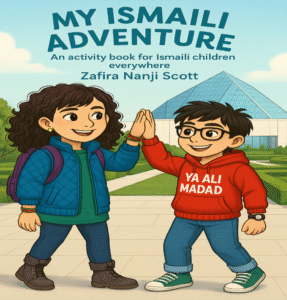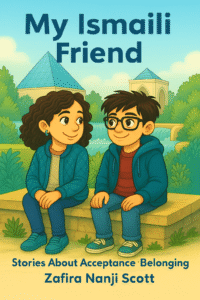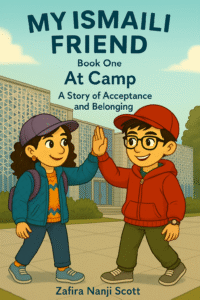✍️ Why I Wrote My Ismaili Adventure
✍️ Why I Wrote My Ismaili Adventure

Introducing the My Ismaili Series
I didn’t set out to write a children’s book.
I set out to answer a question — one that came in many forms:
How do I explain this to my child?
What do I say to my student, my partner, my friend?
What does it mean to belong, when you’re learning from the outside in?
My Ismaili Adventure began as a response to that need — a way to make space for the youngest members of our Jamat (and those beside them) to enter into the richness of our community with curiosity, care, and comfort. It’s a story told in simple words and friendly drawings, but it carries something deeper: the reassurance that you’re allowed to take your time, to ask questions, and to feel your way into faith.
We don’t always talk openly about what it means to grow up Ismaili — especially when you’re new to it. No one sits down with a multi-faith caregiver or step sibling to say – let me give you the vocabulary you will encounter through your engagement with our family – and yes, the onus is on both parts. Whether you’re a first-time parent, a multifaith caregiver, a child navigating difference, or someone who never saw themselves in a storybook — this series is for you. It’s also for the families who bring mehmani in plastic containers, who sit in quieter spaces because it helps them regulate, who whisper “Ya Ali” when they’re nervous, who like knowing what comes next.
This isn’t just one book. It’s the start of a full journey. The characters, Hamida and Shiraz are named after my parents but are so much more. They are guides and friends brimming with their own identities – and I’ll do a separate post on each of them one of these days.
My Ismaili Adventure — our introduction to spaces, people, and practices (Age 6+)
My Ismaili: First Safar — a sensory-friendly colouring book to support early years (Age 3+)
My Ismaili Friend — a story series about friendship, faith, and belonging (Ages 8+)
My Ismaili: A Journal of Reflection — a companion for quiet moments and big feelings (Any age)
And more to come.
These books are not doctrinal. They’re not meant to explain everything or speak for everyone. What they offer is a starting place — soft, thoughtful, inclusive — for exploring identity in community.


